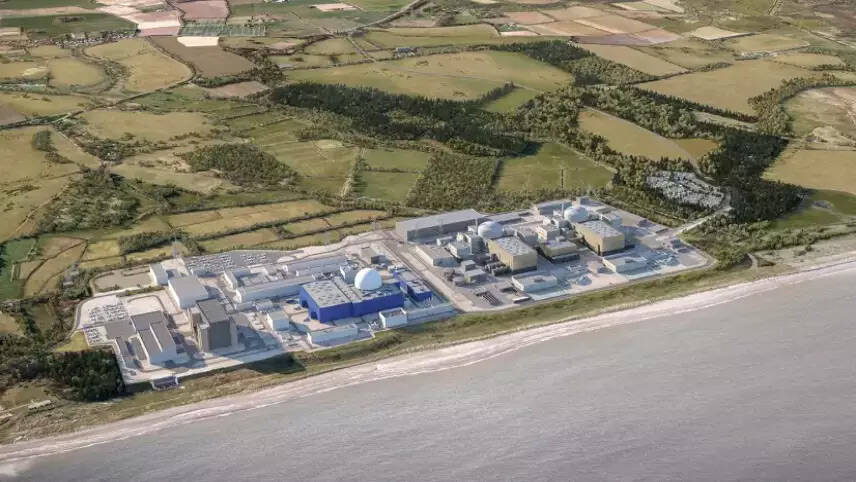Register for free and continue reading
Join our growing army of changemakers and get unlimited access to our premium content

Pictured: An artist's impression of Sizewell C. Image: EDF
Delivering the Autumn Statement on 17 November, Hunt stated: “Cheap, low-carbon, reliable energy must sit at the heart of any modern economy. But Putin’s weaponization of international gas prices has helped drive the cost of our national energy consumption right up. This year, we will spend an extra £150bn on energy compared to pre-pandemic energy.
“Over the long-term, there’s only one way to stop ourselves being at the mercy of international gas prices – energy independence combined with energy efficiency.”
He added that, “above all”, the Conservative Party’s priorities were energy efficiency and nuclear development. He confirmed that Sizewell C has been confirmed, subject to final Government approval.
Today (29 November), the Government has confirmed that final approval. The Department for Business, Energy and Industrial Strategy (BEIS) has stated that the Government will take a £679m stake in the 3.2GW project and will urge China General Nuclear to end its involvement. It will allocate a multi-million-pound package to cover buy-out costs, commercial arrangements and tax.
This is a significant increase from the £100m option fee contribution for Sizewell C which the Government confirmed back in January. It will see the Government becoming a 50% shareholder in the project’s development phase.
BEIS has stated that EDF, which is developing the power plant, will “provide additional investment to match the Government’s stake”. But with the total project cost sitting around £20bn, it is clear that additional backers will need to be found.
Sizewell C will be the UK’s first project to use a new funding model for nuclear, the Regulated Asset Base (RAB) model. This model provides investors with regular returns before a plant begins generating power. It has replaced the previous Contracts for Difference (CfD) approach to nuclear funding due to the passage of the Nuclear Energy (Financing) Bill earlier this year, when Kwasi Kwarteng was in the top job at BEIS.
EDF Energy’s chief executive Simone Rossi said the Government’s additional funding is “a big vote of confidence in Sinzewell C”.
Hunt has called the move “the biggest step on the UK’s journey to energy independence”, given that the UK Government has note backed a large nuclear project in more than 30 years.
Legal challenge
More than half of the British nuclear capacity that was online in May 2021 is set to be retired by 2025. BEIS used this impending ‘nuclear gap’ to justify granting development consent for Sizewell C this July, stating a “very substantial and urgent need” for the plant in delivering the UK’s Energy Security Strategy.
The Strategy states that the UK should host 24GW of installed nuclear capacity by 2050, meaning that nuclear supply will meet a quarter of electricity demand. It commits the Government to reaching a Final Investment Decision on at least one large nuclear power station this Parliament.
Some local community groups and major environmental groups have argued that BEIS rushed the decision on Sizewell C without accounting for key information on impacts such as water extraction and disrupting wildlife. On the former point, Sizewell B uses about 800,000 litres of potable water each day.
Friends of the Earth moved in August to launch a legal challenge to BEIS over the Sizewell C approval decision.
It bears noting that EDF was initially not recommended by Suffolk County Council in 2020 on the grounds that insufficient information was provided about the project’s impacts on local communities and nature. Particular concerns included procuring water and potential impacts on the local nature reserve.
The Council stated that “unless the outstanding water supply strategy can be resolved and sufficient information provided to enable the secretary of state to carry out his obligations under the Habitats Regulations, the case for an order granting development consent for the application is not made out”. As Sizewell C is a nationally significant infrastructure project, the government can bypass the council.
Friends of the Earth argued that, when it launched its challenge, no more information had been provided or considered about Sizewell C’s nature and water footprint. Together Against Sizewell C, a coalition of groups opposed to the plans, are supporting Friends of the Earth.


Please login or Register to leave a comment.